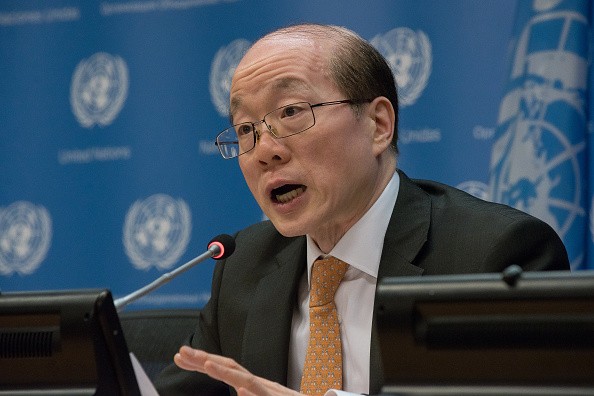As assigned by the 2030 agenda of sustainable development, Chinese permanent representative to the U.N. Liu Jieyi appealed for autism among migrants to be discussed within the U.N. health policy’s broader context. Liu gave the statement in line with the celebration of the World Autism Day last Friday.
Liu said at the U.N. that methods to promote cooperation between countries in realizing health and disability goals connected to the 2030 agenda should be instituted by the governments.
He appealed for more financial resources to be invested with the aim of enhancing medical services and healthcare in remote and underdeveloped areas. According to Liu, "these are coincidentally areas where migration is more likely to take place."
He made his remarks at a high-level conference on autism and developmental disabilities among migrants.
"It is important to stress the role of reform and innovation in the overall public health system, and also in the technology and medicine involved to address the challenge of more cases of autism throughout the world," Liu said.
The Chinese representative also emphasized the importance of prevention by shifting the health perception from "a treatment-centered approach to a health-centered approach."
According to Liu, public health is a critical factor in China’s development strategy. The concept that prosperity cannot be achieved without health" directs his country, he said.
Liu added that China is exerting efforts to encourage healthy lifestyles, optimize health services, enhance the health care system, create a healthy environment, and expand the country’s health industries.
Colorful Dream, a program employed by China to assist children with disabilities, offers financial aid and rehabilitation services to children with autism. Those from impoverished and migrant worker families are prioritized by the program.
"In China children with autism are fondly called 'children of stars,'" said Liu.
"China will continue to work with other countries to support autism treatment and rehabilitation and also raise global awareness and strengthen cooperation so that children of the stars from all over the world will enjoy a life as fruitful of all other kids, and that will certainly be a much better world," he added.
Health services are expected to address the needs of those with autism among migrants as the sector is prioritized in the U.N. health policy.



























